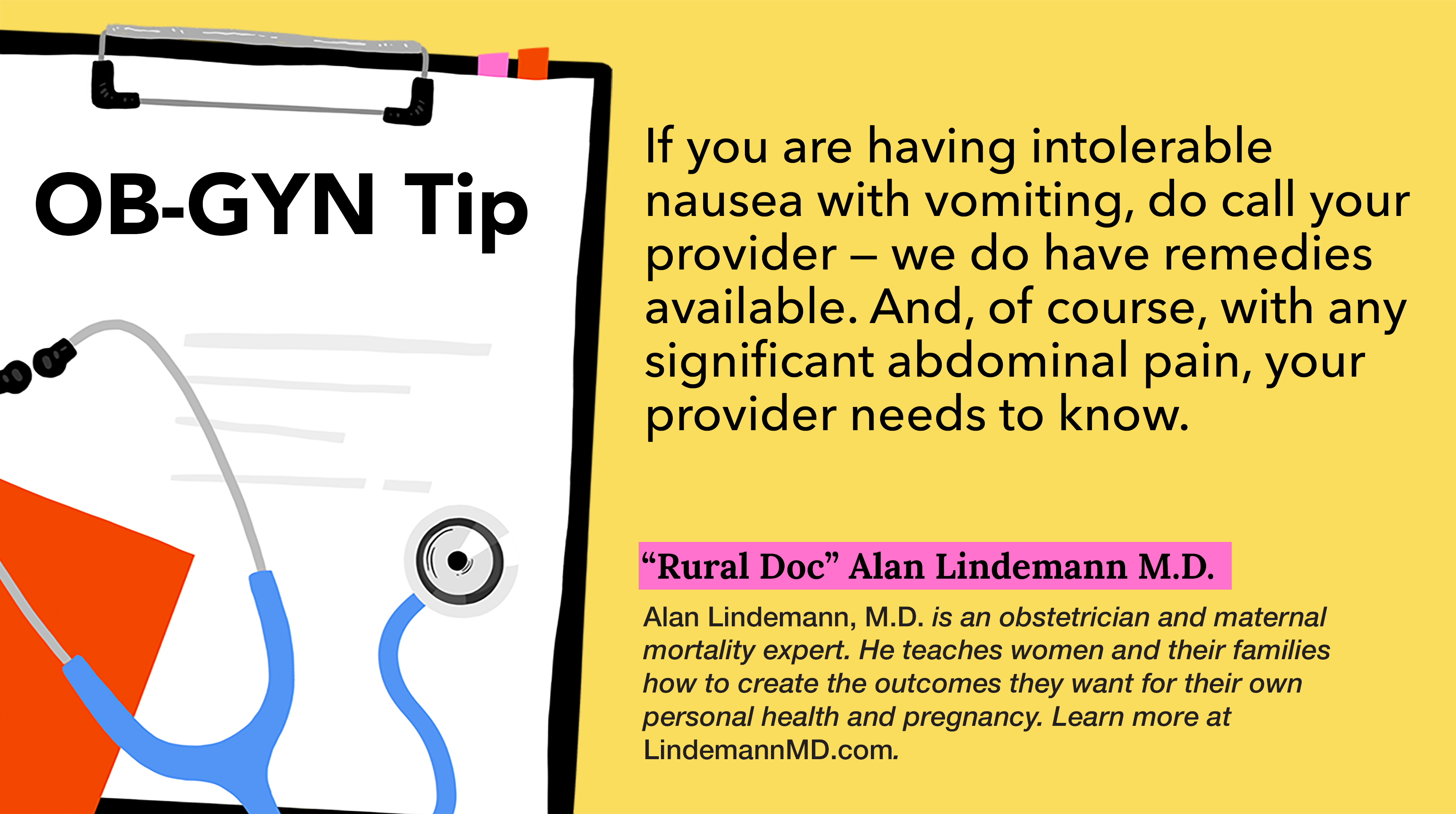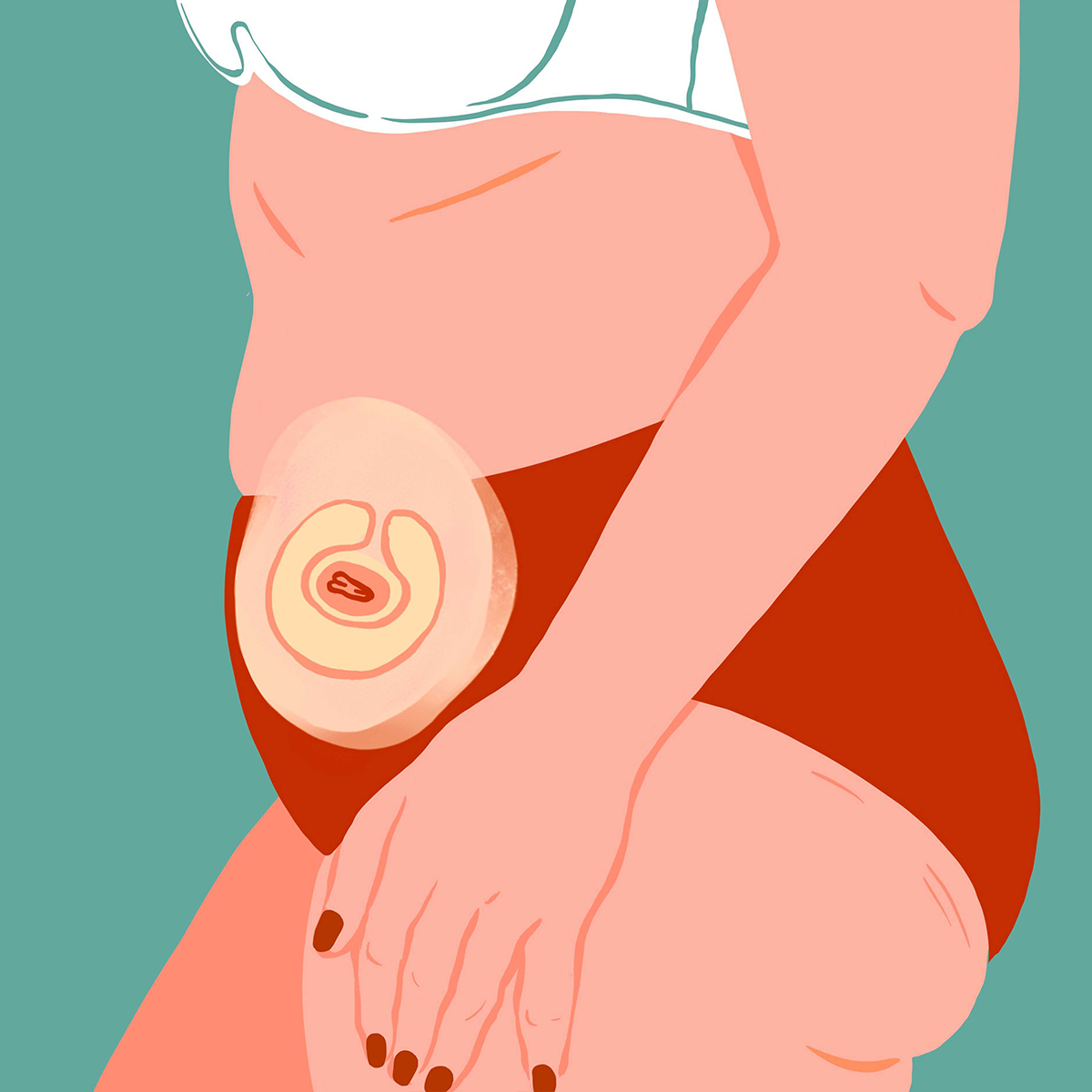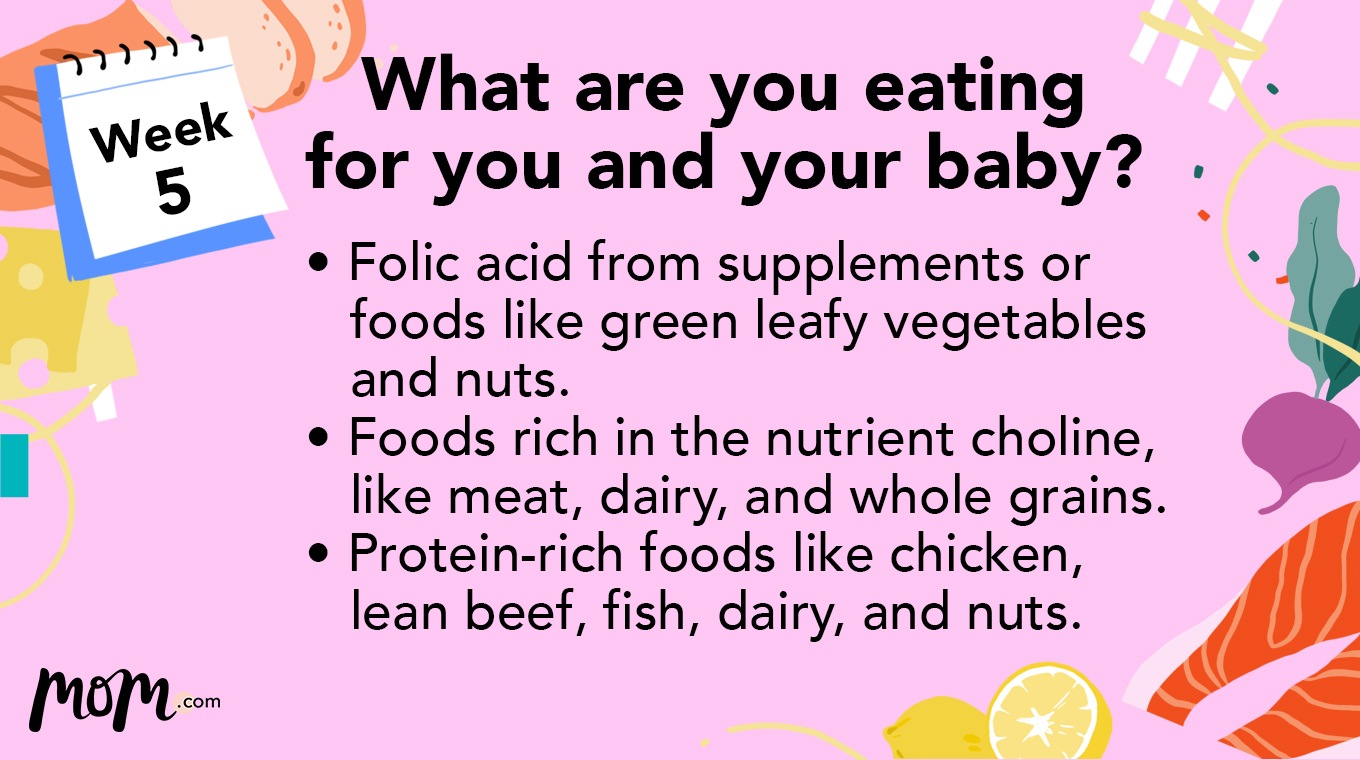
In this article
You’re 5 weeks pregnant!
Hello, hormones! At five weeks pregnant, your baby is busy transforming from a cluster of cells the size of a small gem like a diamond into a full-fledged fetus. Your surging levels of pregnancy hormones signal to your body that changes and extra work are needed to nourish your developing baby. Pregnancy hormones carry out a vital job, but they can also bring with them some unwelcome side effects, including morning sickness, fatigue, and moodiness. In other words, buckle up, because the second month can be a bumpy ride.
Over the next few weeks, intense development will continue to take place as your baby’s main organ systems (nervous system, digestive system, circulatory system, etc.) quickly form and, by about eight weeks after conception, are all in place. They will develop and mature as the months progress.
Emotionally, you might be noticeably more moody — feeling exhilarated one minute and anxious the next. Other typical first-trimester inconveniences may also develop, including increased urination, morning sickness, and food aversions.

Pregnancy symptoms at 5 weeks
Unlike the first month, the second month of pregnancy brings a lot of noticeable changes. “Your baby is very tiny, but organ systems are starting to develop,” Felicia L. Hamilton, M.D., OB-GYN at MedStar Washington Hospital Center in Washington, told Mom.com. “You might start to experience early signs of pregnancy that could include nausea, nipple soreness, urinating more frequently, moodiness, and fatigue. Your blood volume is increasing, and your heart will pump blood faster for your baby.”
Every woman adjusts to pregnancy in her own way, but one second-month symptom most moms-to-be seem to encounter? Fatigue. “The first trimester is exhausting for most pregnant women. It takes lots of energy to grow a new baby, not to mention all the changing hormones,” said Kelly Kasper, M.D., obstetrics & bynecology at Indiana University Health. As for a remedy for fatigue, Dr. Kasper recommended listening to your body’s needs by taking naps, turning in early, and sleeping in late as much as you can. Trust us, get all the sleep you can now!
At five weeks pregnant, don’t worry if you haven’t started experiencing any pregnancy symptoms yet. After all, every person’s body reacts to hormones and growing a human differently. However, you may notice some of these other symptoms of being pregnant at five weeks:
Breast tenderness
Usually one of the earliest signs of pregnancy, your breasts may feel achy, heavy, lumpy, tingly, extra sensitive, and extremely uncomfortable due to rising estrogen and progesterone levels boosting blood flow.
Food cravings or aversions
One of the stereotypical signs of pregnancy is that you might find yourself craving random foods or hating foods you normally love. It’s most likely due to your body adjusting to your fluctuating hormone levels, so feel free to indulge your cravings a bit without going overboard. After all, you’re growing a baby!
Excessive saliva
Another weird symptom of being pregnant is excessive saliva — usually accompanied by morning sickness. It’s thought to be a way for your body to protect your mouth, teeth, and throat from stomach acid that can occur even if you don’t feel nauseated, and your mouth will constantly feel as if it’s filling with spit. Don’t worry too much about it — this will eventually pass in the second trimester.
Nausea and vomiting
Commonly starting around four to six weeks of pregnancy, nausea and vomiting, or “morning sickness,” doesn’t occur only in the morning — it can happen at any time. You might feel generally queasy, or certain foods or smells might trigger that seasick feeling. Sometimes it’s worsened because of an empty stomach (even though eating is likely the last thing you want to do), and some ginger ale or saltine crackers may help. Symptoms usually stop in the second trimester.
What does 5 weeks equal in months?
At five weeks pregnant, you’re at the start of your second month of pregnancy. Because pregnancy is 40 weeks long and is not easily divisible by three to split into trimesters, you can see why it can get confusing real quick. Each trimester is about 13 to 14 weeks long, and at five weeks pregnant, you’re in your first trimester. Here’s a quick primer on what pregnancy weeks equal to in months around five weeks:
- Month 2: Weeks 5 to 8
- Month 3: Weeks 9 to 13
- Month 4: Weeks 14 to 17
Your ultrasound
Most pregnant people get their first ultrasound during their first prenatal visit at around eight to 10 weeks gestation. However, if you were to get an ultrasound at five weeks, you would likely only see the yolk sac, which nourishes the embryo and makes white blood cells early on in your pregnancy, and the gestational sac, which surrounds the yolk sac and holds amniotic fluid.
Your pregnant belly at 5 weeks

This month, your embryo resembles a tadpole and is made of three layers: the endoderm (inner layer), mesoderm (middle layer), and ectoderm (outer layer). These layers will eventually turn into organs and tissues.
The endoderm will eventually turn into lungs and the gut, the mesoderm is forming into the heart and circulatory system, and the ectoderm is starting to develop the neural tube, which will eventually turn into your baby’s brain, spinal cord, and nerves.
You might also notice some outward signs of pregnancy beginning to appear. Changes you might detect include:
More pronounced blood vessels
Blood vessels, especially on the breasts and abdomen, become more pronounced as the amount of blood in your body increases to bring nourishment to your growing baby. Your total blood volume increases by about 15% during the first trimester alone! By the end of pregnancy, your heart will pump about 40% more blood than it did pre-pregnancy.
Expanded uterus
Although you can’t feel it, your uterus has begun to expand, growing from the size of a clenched fist to the size of a softball by the end of your second month. As a result, you might notice your jeans fitting a bit more snugly these days — though, probably not enough to break out the maternity pants just yet.
Pregnancy tips at 5 weeks
Childbirth might seem like a long way off, but as Lizellen La Follette, M.D., OB-GYN at Marin General Hospital in Greenbrae, California, recommended, being an early bird when it comes to choosing and registering for childbirth prep classes has its benefits. “You might want to register for childbirth classes now because sometimes these classes fill up early,” she noted.
It’s during the second month of pregnancy that your baby’s skeleton changes from cartilage to bone, which means increasing your calcium intake to about 1,000 mg per day is a must to make sure your baby’s bones (and your own skeleton) are healthy and strong. Good dietary sources for calcium include milk, yogurt, and cheese. Non-dairy sources for the bone-building mineral include fortified soy milk, leafy green vegetables, and sesame seeds.
Your pregnancy checklist at 5 weeks
If you haven’t scheduled your first prenatal visit with your OB-GYN or midwife yet, make sure you prioritize doing so this week. Some other things you might want to put on your five week pregnancy checklist include:
- List all your medications and supplements so your health-care provider can help you determine if they are safe to take during your pregnancy.
- Gather your family health history(ies) so you can inform your provider of any chronic conditions or genetic abnormalities that may run in the family.
- Consult with your doctor to see if you should get any vaccines such as for the flu, coronavirus, or whooping cough (T-dap) to protect yourself and your baby.
You should also stop smoking, using alcohol or drugs, and cut back on your caffeine consumption.
What are you eating for you and your baby?

Ensure a healthy diet for yourself at five weeks pregnant by eating foods high in nutrients and adding supplements and vitamins as necessary. Now that your baby is dependent on you for development and growth, consider adding the following foods to your diet:
Folic acid
Folic acid, a B vitamin, is an integral component for neural tube, central nervous system, and brain development. Eat foods like green leafy vegetables, broccoli, chickpeas or kidney beans, nuts, and oranges or strawberries. You can also take a folic acid supplement.
Choline
Choline is an essential nutrient that is necessary in many physiological processes, such as producing neurotransmitters in the brain and phospholipids that are part of cell membrane structures. Along with folic acid, it helps decrease neural tube defects and is vital for developing the memory center of the fetal brain. You can find choline in foods like meat, fish, dairy, eggs, potatoes, broccoli, nuts, seeds, and whole grains.
DHA
DHA is a healthy fat and an omega-3 fatty acid essential to your baby’s brain and eye development. You can ingest DHA from supplements or prenatal vitamins, or you can eat foods like fatty, oily fish such as salmon, sardines, seaweed, dairy, or omega-3-enriched or pasture-raised eggs.
Proteins
To ensure healthy development of tissues, antibodies, hormones, and enzymes, you’ll need to eat three servings of protein a day. Some protein-rich foods are skinless chicken, lean beef, eggs, fish, dairy, nuts, or legumes.
When to call your doctor
If your nausea is unbearable, you’re vomiting, or you are bleeding at five weeks pregnant, please contact your medical practitioner immediately. Additionally, if you experience sharp abdominal, pelvic, neck, or shoulder pain with light to heavy vaginal bleeding, dizziness or fainting, or rectal pressure, you could possibly have an ectopic pregnancy. Though ectopic pregnancies aren’t obvious until about six to eight weeks, you should know the symptoms.
If you are vomiting so much that it affects your daily life, you might have hyperemesis gravidarum. Hyperemesis gravidarum affects less than 3% of pregnant folks and can lead to dehydration, mineral imbalance, weakened muscles, and weight loss. It generally starts around four to six weeks and generally gets better around 20 weeks (but not always). There are various treatments and medication your doctor can provide, with hospitalization necessary in up to 5% of women.
According to the Centers for Disease Control and Prevention (CDC), pregnant women are at a higher risk of severe illness from COVID-19 and death compared to non-pregnant people. Furthermore, pregnant women with COVID-19 are at increased risk of delivering a baby before 37 weeks (preterm birth) and other adverse ramifications.
Note: If you are visiting a medical professional during COVID, make sure to ask about the facility’s safety measures and confirm that they are following COVID protocols as indicated by the CDC.
Additional considerations
According to the CDC, as of 2018, the rate of twins is 32.6 twins for every 1,000 births. Depending on your genetics and whether you’re undergoing fertility treatments, your chances of twins will vary.
While the only way to confirm that you are carrying twins or multiples is an ultrasound, some women swear they had a sense they were pregnant with twins. Of course, plenty more pregnant people had no clue. Here are some signs you might be pregnant with twins or multiples:
- Increased and prolonged morning sickness
- Fatigue
- Higher than expected human chorionic gonadotropin (hCG)
- Second heartbeat (usually only detectable at around eight weeks pregnant)
If you are pregnant with twins or multiples, please consult with your medical professional to make sure you can stay healthy and have the type of care appropriate to the level of risk your pregnancy warrants. Check to see if your OB-GYN is comfortable delivering twins vaginally or only via caesarean. Discuss your risks of preterm delivery, possible bedrest, and whether you might need to see a specialist. Take your prenatal vitamins, maintain a healthy diet, and follow your doctor’s advice.






